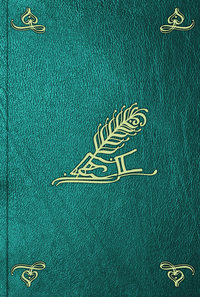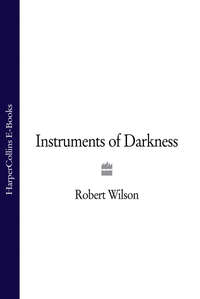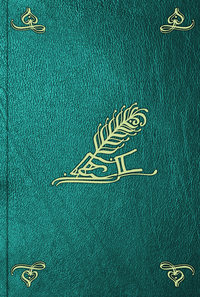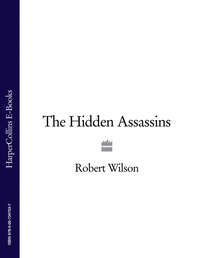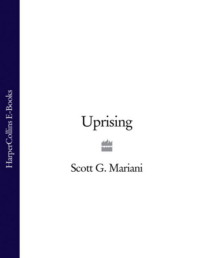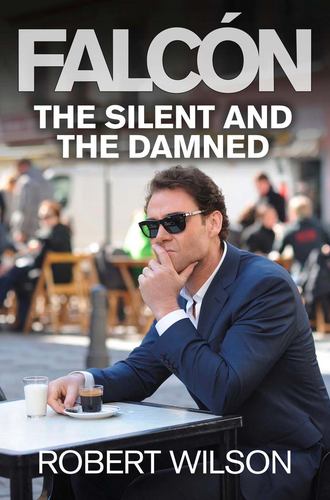
Полная версия
The Silent and the Damned
The living room by comparison was like the inside of a confused person’s head. Every surface was covered in bric-a-brac – souvenirs from around the world. Falcón saw holidays in which Vega obsessively filmed with the latest technology while his wife devastated the tourist shops. On the mid section of the sofa was a cordless phone, a box of chocolates with half a tray uneaten and three remotes for satellite, DVD and video. On the floor was a pair of pink fluffy slippers. The lights were off, as was the television.
Each of the stairs up to the bedrooms was made out of a slab of absolute black granite. He checked the glass-smooth surfaces as he moved slowly upwards. Nothing. The floor at the top of the stairs was made of black granite inlaid with diamonds of white marble. He was drawn to the door of the master bedroom. The double bed was occupied. A pillow lay over the face of the occupant whose arms lay outside the light duvet on the bed. There was a slim band of a wristwatch on an arm flung out as if reaching for help. A single visible foot had bright-red toenails. He went to the bedside and checked for a pulse while looking down on the two depressions in the pillow. Lucía Vega was dead, too.
There were three other rooms upstairs, all with bathrooms. One was empty, another had a double bed and the last belonged to Mario. The ceiling of the boy’s room was painted with a night sky. An old, one-armed teddy bear lay face up on the bed.
Falcón reported the second dead body to Juez Calderón. The Médico Forense was kneeling by Sr Vega’s side and working at prising his fingers apart.
‘There seems to be a note in Sr Vega’s right hand,’ said Calderón. ‘The body’s cooled down quickly in the air con and I want him to get it out without tearing it. Any first thoughts, Inspector Jefe?’
‘On the face of it, it looks like a suicide pact. He’s smothered his wife and then drunk some drain cleaner, although that’s a nasty, lingering way to kill yourself.’
‘Pact? What makes you think there was an agreement?’
‘I’m just saying that’s what it looks like,’ said Falcón. ‘The fact that the little boy was left out of it might indicate some collusion. A mother wouldn’t be able to bear the thought of the death of her own child.’
‘And a father could?’
‘It depends on the pressure. If there’s the possibility of financial or moral disgrace he might not want his male child to see that or live with the knowledge of it. He would see killing him as a favour. Men have killed their entire families because they think they have failed them and that it’s better nobody survives bearing their name and its shame.’
‘But you have your doubts?’ said Calderón.
‘Suicide, whether it’s a pact or not, is rarely a spontaneous thing and there are some spontaneous elements to this crime scene. First, the door was not securely locked. Consuelo Jiménez had called to say that Mario had fallen asleep so they were sure he wasn’t going to return, but they didn’t double lock the door.’
‘The door was shut, that was enough.’
‘If you’re about to do something unnatural you would put yourself behind locked doors to make absolutely certain there was no possibility of interruption. It’s a psychological necessity. Serious suicides normally take full precautions.’
‘What else?’
‘The way everything has just been left here: the phone, the chocolates, the slippers. There seems to be a lack of premeditation.’
‘Well, certainly on her part,’ said Calderón.
‘That is a point, of course,’ said Falcón.
‘Drain cleaner?’ said Calderón. ‘Why would you take drain cleaner?’
‘We may find there was something stronger than drain cleaner in the bottle,’ said Falcón. ‘The reason? Well, he could be meting out punishment to himself…you know, cleaning himself of all his sins. There’s also the advantage of it being noiseless and, depending on what else he’s taken, irrevocable, too.’
‘Well, that does sound premeditated, Inspector Jefe. So there are both spontaneous and planned elements to these deaths.’
‘All right…if they were lying on the bed together holding hands, dead, with a note pinned to his pyjamas then I’d be happy to treat it as suicide. As it stands, I would prefer to investigate the deaths as murder before deciding.’
‘Perhaps the note in his hand will…’ said Calderón. ‘But strange to get dressed for bed before you…or is that another psychological necessity? Getting ready for the biggest sleep of all.’
‘Let’s hope he was the sort who left his security cameras on and the recorders loaded with tapes,’ said Falcón, returning to the pragmatic. ‘We should have a look in his study.’
They crossed the entrance hall and went down a corridor by the stairs. Vega’s study was on the right with a view of the street. There was a leather chair tilted back behind a desk, with a framed poster of this year’s bullfights held during the Feria de Abril hanging on the wall.
The desk was a large, empty, light-coloured piece of wood with a laptop and a telephone. Three drawers on castors sat underneath. Behind the door were four black filing cabinets and at the end of the room the recording equipment for the security cameras. There were no LEDs and the plugs were out of the wall sockets. Each recorder had an unused tape inside.
‘This doesn’t look good,’ said Falcón.
The filing cabinets were all locked. He pulled at the mobile set of drawers under the desk. Locked. He went upstairs to the bedroom and found a walk-in closet, with his suits and shirts to the right and her dresses and a vast number of shoes (some worryingly similar) to the left. A tall set of drawers had a wallet, set of keys and some change on top.
One of the keys opened the drawers under the desk. There was nothing unusual in the top two, but as he pulled on the third drawer something at the back butted up against the ream of paper at the front. It was a handgun.
‘I haven’t seen many of these,’ said Falcón. ‘This is a Heckler & Koch 9 mm. You own one of these if you’re expecting trouble.’
‘If you had one of those,’ said Calderón, ‘would you drink a litre of drain cleaner or blow your brains out?’
‘Given the choice…’ said Falcón.
The lawyer appeared in the doorway, his dark brown eyes set hard in his head.
‘You have no right –’ he started.
‘This is a murder investigation, Sr Vázquez,’ said Falcón. ‘Sra Vega is upstairs on the bed, she’s been suffocated with a pillow. Any idea why your client should have one of these in his study?’
Vázquez blinked at the gun.
‘Seville is one of those curious cities where the wealthy and privileged people of Santa Clara are separated from the drug-ridden disadvantaged ones of the Polígono San Pablo by a small barrio, the paper factory and the Calle de Tesalónica. I imagine he had it for his own protection.’
‘Like the security cameras he didn’t bother to switch on?’ said Falcón.
Vázquez looked at the inert recorders. His mobile went off playing the first few bars of Carmen. The lawmen grinned at each other. Vázquez went down the hall. Calderón closed the door and Falcón knew what he’d suspected as he’d shaken the Juez’s hand that morning – there was news and it was relevant to him.
‘I wanted you to hear this from me,’ said Calderón, ‘and not the rumour machine in the Jefatura or the Edificio de los Juzgados.’
Falcón nodded, his larynx suddenly paralysed.
‘Inés and I are getting married at the end of the summer,’ said Calderón.
He’d known this was coming but the news still rooted him to the floor. It seemed like minutes before his feet, moving at the pace of a diver’s on the ocean floor, brought him close enough to shake Calderón’s hand. He thought about gripping the judge’s shoulder in comradely fashion but the bitterness of his disappointment filled his mouth with the taint of a bad olive.
‘Congratulations, Esteban,’ he said.
‘We told our families last night,’ said Calderón. ‘You’re the first outsider to know.’
‘You’ll make each other very happy,’ said Falcón. ‘I know.’
They nodded to each other and disengaged.
‘I’ll get back to the Médico Forense,’ said the judge and left the room.
Falcón went to the window, took out his mobile and thumbed up Alicia Aguado’s number from the address book. She was the clinical psychologist he’d been seeing for more than a year. His thumb stroked the call button and a flash of anger helped him to resist pressing it. This could wait until their regular weekly appointment the following evening. They’d covered his ex-wife Inés a million times over and she would just chastise him again for not moving on.
Javier and Inés had settled their differences. It had been a part of the rebuilding process after the Francisco Falcón scandal had broken fifteen months ago. Francisco was the world-famous artist whom Javier had always believed to be his father, but who had been revealed as a fraud, a murderer and not his real father after all. Inés had forgiven Javier even before they’d arranged to meet some months after the media frenzy. It had been his coldness, captured by her terrible rhyming mantra, Tú no tienes corazón, Javier Falcón. ‘You have no heart, Javier Falcón’, that had finished their short marriage. Given his family history it was now clear to her why he should have been deficient in this fundamental human way. Over the last few months of his therapy thoughts of her had subsided, but whenever her name came up there was an unmistakable leap in his stomach. Her terrible accusation still mangled his mind and, in forgiving him she’d become, in his unstable state, someone to whom he had to prove himself.
And now this. Still, Inés had been seeing the judge for nearly a year and a half. They were the new golden couple not just of the Seville legal system, but of Seville society as well. Their marriage was an inevitability, which didn’t made the news any easier to bear.
Vázquez appeared on his shoulder in the reflection of the glass. Falcón switched back into professional mode.
‘How surprised are you to find your client dead under these strange circumstances, Sr Vázquez?’ he asked.
‘Very,’ he said.
‘Where’s the licence for his gun, by the way?’
‘That’s his private affair. This is his house. I’m only his lawyer.’
‘But he entrusted you with the keys to his home.’
‘He has no family here. When they went away for the summer they often took Lucía’s parents, as well. There is someone in my office all the time. It seemed…’
‘What about the Americans next door?’
‘They’ve been here barely a year,’ said Vázquez. ‘He rents that house to them. The husband works for him as an architect. He didn’t like people to get too involved in his life. He gave them my telephone number in case of emergencies.’
‘Is Vega Construcciones his only company?’
‘Let’s say he’s in the property business. He builds and rents out apartments and offices. He constructs industrial property to order. He buys and sells land. He has a number of estate agencies.’
Falcón sat on the edge of the desk, his foot swinging.
‘This gun, Sr Vázquez, is not for discouraging burglars. It’s a gun for stopping a man dead. Even if you clipped a man on the shoulder with a 9 mm bullet from a Heckler & Koch you’d probably kill him.’
‘If you were a rich man who wanted to protect his family and home, would you go out and buy a toy or a serious piece of weaponry?’
‘So, as far as you know, Sr Vega is not involved in anything criminal or borderline illegal.’
‘Not that I know of.’
‘And you can think of no reason why anybody would want to kill him?’
‘Look, Inspector Jefe, I’m involved with the legal aspects of my clients’ businesses. I rarely get involved in their personal lives unless it has an impact on their business. I know about his company. If he was doing anything else then he was not employing me as his lawyer. If he was having an affair with another man’s wife, which I doubt, I wouldn’t have known about it.’
‘So what is your reading of this crime scene, Sr Vázquez? Sra Vega upstairs, suffocated by a pillow. Sr Vega downstairs, dead with a litre of drain cleaner by his side. While their son, Mario, is in the hands of a neighbour for the night.’
Silence. The brown eyes steadied on Falcón’s chest.
‘It looks like suicide.’
‘At least one of those deaths has to be a murder.’
‘It looks like Rafael killed his wife and then himself.’
‘Did you ever see any evidence of that level of instability in your late client?’
‘How’s anybody supposed to know what goes on inside a man’s head?’
‘So, he wasn’t looking at business failure or financial ruin?’
‘You’d have to speak to the accountant about that, although the accountant was not the finance director. His knowledge would probably be confined.’
‘Who was the finance director?’
‘Rafael kept things close to his chest.’
Falcón gave him his notebook. Vázquez wrote down the accountant’s name, Francisco Dourado, and his details.
‘Is there any scandal brewing that you know of, involving Sr Vega or his company?’ asked Falcón.
‘Now I know you,’ said Sr Vázquez, smiling for the first time with astonishingly perfect teeth. ‘Falcón. I didn’t make the connection before. Well…you’re still here, Inspector Jefe, and my client hasn’t gone through anything like you did.’
‘But I didn’t commit any crime, Sr Vázquez. I wasn’t facing moral ruin or personal shame.’
‘Shame,’ said the lawyer. ‘Do you think shame still has that sort of power in our modern world?’
‘It depends on the society in which you have built your life. How important its opinion is to you,’ said Falcón. ‘By the way, do you hold Sr Vega’s will?’
‘Yes, I do.’
‘Who is the next of kin?’
‘As I said, he has no family.’
‘And his wife?’
‘She has a sister in Madrid. Her parents live here in Seville.’
‘We’ll need someone to identify the bodies.’
Pérez appeared in the doorway.
‘They’ve pulled the note out of Sr Vega’s hand,’ he said.
They went to the kitchen, squeezing past the forensics who were crowding the corridor with their cases, waiting to get on to the crime scene.
The note was already in a plastic evidence bag. Calderón handed it over, eyebrows raised. Falcón and Vázquez frowned as they read it, and not just because its ten words were written in English.
‘…the thin air you breathe from 9/11 until the end…’
2
Wednesday, 24th July 2002
‘Do these words mean anything to you?’ asked Calderón.
‘Nothing at all,’ said Vázquez.
‘Does the handwriting look normal to you?’
‘It’s definitely Sr Vega’s…that’s all I can say.’
‘It doesn’t differ from his usual handwriting in any way?’
‘I’m not an expert, Juez,’ said Vázquez. ‘It doesn’t seem to have been written with a trembling hand, but it is not exactly fluid either. It seems careful rather than dashed off.’
‘It’s not what I would call a suicide note,’ said Falcón.
‘What would you call it, Inspector Jefe?’ asked Vázquez.
‘An enigma. Something that’s demanding to be investigated.’
‘Interesting,’ said Calderón.
‘Is it?’ said Vázquez. ‘We are always given the impression that detective work is very exciting. This…?’
‘If you were a murderer you would normally not want to have your work investigated,’ said Falcón. ‘You would hope to get away with it. You told me earlier that you thought this crime scene looked like a suicide. A killer with a motive would usually try to give that notion authority with a straightforward suicide note and not with something that makes the investigating team think: What’s this all about?’
‘Unless he was a madman,’ said Vázquez. ‘One of those serial killers laying down a challenge.’
‘Well, first of all, there’s no challenge. A half-note in Sr Vega’s handwriting is not what I would call a psychotic attempt to communicate. It’s too oblique. Secondly, the crime scene does not contain any of the qualities we associate with a psychopathic killer. They are the sort of people who think about body placement for instance. They introduce elements of their obsessions into the picture. They show that they have been here, that an intricate mind has been at work. There’s nothing casual about a serial killer’s montage. A bottle of drain cleaner is not left where it fell. Everything has importance.’
‘So what normal person would kill a man and his wife and want to have it investigated?’ asked Vázquez.
‘A murderer who had good reason to hate Sr Vega and wanted him to be revealed for the man he was,’ said Falcón. ‘As you may know, murder inquiries are very intrusive processes. To find the motive we have to conduct a post mortem, not just on the body but on the victim’s life. We have to go into everything – business, social, public, private and as personal as we can get. Perhaps Sr Vega himself…’
‘But, Inspector Jefe, you can never get inside a man’s head, can you?’ said Sr Vázquez.
‘The other possibility is that Sr Vega himself is trying to communicate with us. By balling this note in his fist he may be telling us to investigate the crime.’
‘You didn’t let me finish,’ said Vázquez. ‘The one thing my job has taught me is the three voices of man: the public one to address the world, the private one he keeps for his family and friends, and the most troubling one of all – the voice inside his own head. The one he uses to talk to himself. Successful people like Sr Vega have very powerful inner voices and something I’ve noticed about that kind of person…he never lets anybody have access to it – not his parents, not his wife, not his first-born child.’
‘That’s not the point –’ said Falcón.
‘The point is that we get insights,’ said Calderón, cutting in. ‘A man’s actions, the way he behaves with people…different people, it all tells us something about him.’
‘In my experience, they tell you what he wants you to think,’ said Vázquez. ‘Let me show you something about Sr Vega and you give me your insight. Can we walk across this kitchen floor yet?’
Felipe and Jorge were brought in to check and clear a corridor across the kitchen floor. Falcón gave Vázquez a pair of latex gloves. They crossed the kitchen to a door on the other side which opened on to a room whose three walls were made up of floor-to-ceiling stainless steel fridges. Hanging on the clear wall was an impressive array of knives, choppers and saws. The white tiles of the floor were pristine and gave off the faint smell of a pine detergent. In the middle of the room was a wooden table with a top thirty centimetres thick. Its bleached surface was a crosshatching of cuts and notches with a declivity in the middle, its edge furred from constant use. Falcón felt a strange sense of dread looking at that table.
‘And this is where he keeps the bodies, is it, Sr Vázquez?’ asked Calderón.
‘Look in the fridges and freezers,’ said the lawyer. ‘They’re full of bodies.’
Calderón opened a fridge door. Inside was a half-carcass of beef with hooves removed. The visible meat was a deep, dark red, almost black in parts where it wasn’t pearled with membrane or covered in thick, creamy yellow fat. The fridges on either side contained several lambs and a pink pig. The latter’s head had been removed and hung on a hook, ears stiff, eyes closed with long white lashes making it look at restful sleep. The other doors opened on to freezers with cuts of frozen meat packaged and stored in baskets or just thrown into the dark frosty depths.
‘What do you make of that?’ asked Vázquez.
‘He wasn’t a vegetarian,’ said Calderón.
‘He enjoyed butchering his own meat,’ said Falcón. ‘Where did he get it from?’
‘From specialized farms up in the Sierra de Aracena,’ said Vázquez. ‘He didn’t think there was a single butcher in Seville who had the first idea about handling meat, neither hanging it nor cutting it up.’
‘Does that mean he used to be a butcher?’ asked Falcón. ‘Do you know when and where that was?’
‘All I know is that his father used to be a butcher before he was killed.’
‘Before he was killed? What does that mean? He was murdered or –?’
‘That was the expression he used to describe the death of his parents. “They were killed.” He never offered an explanation and I didn’t ask for one.’
‘How old was Sr Vega?’
‘Fifty-eight years old.’
‘So, born in 1944…five years after the Civil War ended. They didn’t die in wartime,’ said Falcón. ‘You don’t know when they were killed?’
‘Is this relevant, Inspector Jefe?’ asked Vázquez.
‘We’re building a picture of the victim’s life. It would have had a significant effect on Sr Vega’s mental state if, say, they died in a car accident when he was still a boy. If they were murdered, that would be something else altogether. That leaves unanswered questions and, especially if there was no retribution, it could breed a determination, not necessarily to find out why, which could be beyond his capabilities, but to prove something to himself. To find out who he was in this world.’
‘My God, Inspector Jefe, ‘said Vázquez, ‘perhaps it’s your own experience that’s made you so eloquent on the matter but I’m sorry I can’t help you with that kind of information. I’m sure there are records…’
‘How long have you known him?’ asked Calderón.
‘Since 1983.’
‘Was that here…in Seville?’
‘He wanted to buy a plot of land. It was his first project.’
‘And what had he been doing before that?’ asked Falcón. ‘Butchery doesn’t buy you very much land.’
‘I didn’t ask him. He was my first client. I was twenty-eight years old. I didn’t want to do or ask anything that might lose me the work.’
‘So his background didn’t bother you – the possibility that he might rip you off?’ asked Falcón. ‘How did you meet?’
‘He came in off the street one day. You probably don’t know this about business, Inspector Jefe, but you have to take risks. If you want to be sure about everything you don’t set up your own practice…you work for the State.’
‘Did he have an accent?’ asked Falcón, ignoring the slight.
‘He spoke in Andaluz, but it didn’t sound as if he was born to it. He’d been abroad. I know he spoke American English, for instance.’
‘You didn’t question him about any of that?’ asked Falcón. ‘I mean, over lunch or a beer, not in an interrogation room.’
‘Look, Inspector Jefe, I just wanted the man’s business. I didn’t want to marry him.’
The Médico Forense put his head round the door to say he was going upstairs to look at Sra Vega’s body. Calderón went with him.
‘Was Sr Vega married when you first met him?’ asked Falcón.
‘No,’ said Vázquez. ‘There were no divorce proceedings, although I think he produced a death certificate of a previous spouse. You’ll have to ask Lucía’s parents.’
‘When did they marry?’
‘Eight…ten years ago, something like that.’
‘Were you invited?’
‘I was his testigo.’
‘A trusted man in every respect,’ said Falcón.
‘What do you make of my client’s hobby?’ asked Vázquez, wanting to take back control of the interview.
‘His parents “were killed”. His father was a butcher,’ said Falcón. ‘Perhaps this is his way of keeping a memory alive.’
‘I don’t think he liked his father that much.’
‘So he did give you some personal revelations?’
‘Over the last…nearly twenty years I’ve gleaned some small pieces of information. His father being hard on his only son was one of them. A favourite punishment was to make his son work in the cold store in just a shirt. Rafael suffered from arthritis in his shoulders, which he put down to that early treatment.’
‘Perhaps butchery gives him a sense of control. I mean, not just because he’s good at it but because he’s reducing something large and unmanageable down to comprehensible and usable pieces,’ said Falcón. ‘And that’s the work of the constructor. He takes the vast and complex architect’s plans and dismantles them into a series of jobs involving steel, concrete, bricks and mortar.’


